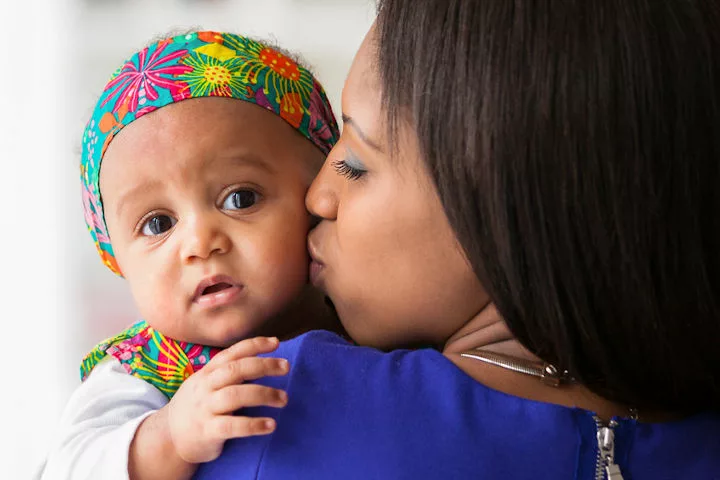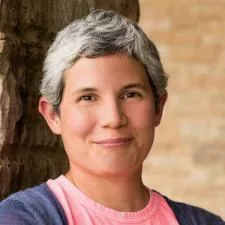Woven intricately into the fabric of the University of Wisconsin School of Medicine and Public Health’s (SMPH) research mission is a goal to understand how communities and individuals can avoid risks for chronic illnesses. Sharing this mission on a broad scale are the Prevention Research Centers of the U.S. Centers for Disease Control and Prevention (CDC).
Congress established the Prevention Research Centers in 1984 (Public Law 98-551) to undertake research and demonstration projects in health promotion, disease prevention, and improved methods of appraising health hazards and risk factors and to serve as demonstration sites for the use of new and innovative research in public health techniques to prevent chronic disease. Each center must be located in a school of public health or academic health center that has an accredited preventive medicine residency program.
In fall 2019, through a highly competitive process, the CDC invited UW–Madison to join forces with this cause and provided the university with a five-year, $3.7 million grant. The university has since established Wisconsin’s first Prevention Research Center (UWPRC) as a partnership among the SMPH, Institute for Research on Poverty, School of Nursing and School of Human Ecology. National connections made possible through this program boost inspiration among the faculty and staff who have come together to make the UW–Madison center a reality.
Program Goals
“We are very excited to introduce this Prevention Research Center to Wisconsin, and to be part of this national group of universities working toward related, yet unique, causes. We are engaging multidisciplinary campus researchers, public health practitioners, and community-based and government organizations from across the state to develop a prevention research agenda aligned with Wisconsin’s priorities,” says the center’s founding director, Deborah Ehrenthal, MD, MPH, a professor in the SMPH Departments of Obstetrics and Gynecology and Population Health Sciences.

To this new role, Ehrenthal brings decades of experience investigating determinants of health and health disparities, particularly in women’s and children’s health, and pulling together experts from myriad disciplines.
The UWPRC aims to improve the health of low-income women, infants and families through health promotion and disease prevention research, with keen attention to health equity. These topics are highly relevant in Wisconsin, where the infant mortality rate for African American babies is nearly three times that of white babies. The effort calls upon the expertise of faculty and staff members to conduct research that will benefit individuals and populations throughout Wisconsin. Critically, the center works to translate and broadly disseminate research findings and strategies to be used in real-world settings. The center’s Community Advisory Board and novel Translation Partners Panel help guide decisions about research design and the ways in which it could be translated at the community level. In June 2020, the center launched its small-grants program. This competitive opportunity yielded many exciting proposals and awarded four grants to faculty members across campus.

Ehrenthal notes, “The UW Prevention Research Center is a prime example of the Wisconsin Idea because our work can impact the entire state. Wisconsin’s diverse populations and geography provide an ideal environment for prevention research that can be translated to other states and regions.”
She adds that the COVID-19 pandemic hit the United States in the center’s formative time, but the faculty and staff quickly adapted processes to keep stakeholders safe. And they soon realized the complexity of the pandemic on the populations they serve. “How people fare during this pandemic depends so much on their life circumstances,” Ehrenthal says. “Our center focuses on the needs of women and families with young children who often live in multigenerational households that include essential workers. These factors may present barriers to being able to follow recommendations aimed at preventing infection.”
Further, she shares, “Nationally, we have seen vast disparities in terms of who was most commonly infected with COVID-19, hospitalized and died. And we continue to see disparities with acceptance of and access to vaccines.”
Thus, in January 2021, the UWPRC launched a project called Building a Public Health Reserve with Community Health Workers (CHW). Led by Ehrenthal and UWPRC Deputy Director Katie Gillespie, DNP, RN, the project’s goal is to design and pilot test a sophisticated, culturally appropriate strategy to support the rapid scale-up of COVID-19 testing, contact tracing and vaccination. This is being accomplished with an existing infrastructure of community-based programs that support families with young children who face higher rates of poverty. Such programs use a variety of models, including working with home visitors and doulas. At the end of this project, the team expects to have a tested strategy that can be scaled up across Wisconsin and adapted for other populations, to inform public health strategies nationally.

Gillespie explains that current organizational partners include RISE Wisconsin; African American Breastfeeding Network; Centro Hispano of Dane County; Southwestern Wisconsin Community Action Program; Public Health Madison and Dane County; Wisconsin Departments of Health Services and Children and Families; Wisconsin Community Health Worker Network; UniteWI; and providers working with members of the Plain Community.
Core Research Project
The UWPRC’s core research project focuses on the effectiveness and dissemination/implementation of a mother-infant therapeutic approach to addressing depression in the postpartum period and supporting the mother-infant and family relationships. In Wisconsin, 12 percent of all mothers, and 31 percent of those who are low income, report experiencing depressive symptoms in the postpartum period. Untreated postpartum depression has been found to be associated with developmental delays and mental health symptoms in children.

SMPH Professors Roseanne Clark, PhD (PG ’87), Department of Psychiatry, and Jane Mahoney, MD (PG ’89), Department of Medicine, co-lead the core research project. “Nationally, we are the only Prevention Research Center to focus on this population for our initial core research project,” says Clark, whose research serves as a model. For more than 35 years, Clark has dedicated her career to the screening, evaluation and treatment of postpartum depression; infant and early-childhood mental health; and at-risk early parent-child relationships. She has published widely and is invited to speak, teach and consult on these topics nationally and internationally.

Previously, Clark translated the results of her federally funded research into community-based interventions for women whose mental health needs often go unserved, as well as their infants and partners. She and Jen Perfetti, LPC, the clinical and professional development coordinator of Parent-Infant Programs in the Department of Psychiatry, pilot-tested the incorporation of a Mother-Infant Therapy Group (M-ITG) into federally funded home-visiting programs in urban, rural and Tribal communities throughout Wisconsin. This approach has been shown to reduce mothers’ depressive symptoms while improving the mother-infant relationship and supporting infant developmental functioning.
“We are fortunate to be able to refine a two-generation intervention focused on mother-infant and family relationships, specifically for mothers experiencing depression in the first year,” shares Clark.
Working closely with families and UWPRC stakeholders, Clark and Mahoney are adapting the M-ITG model for widespread use within a broad range of home-visiting programs. Due to the pandemic, most of these home-visiting programs are being conducted via live online platforms. Recognized for her expertise in dissemination and implementation of evidence-based prevention programs to community settings, Mahoney shares her expertise in translational science, federally funded epidemiologic studies and randomized controlled trials.
By the end of this project, Clark, Mahoney and their team will have translated the therapy group model so that it is scalable and can be adopted across the nation; sustainable within the realm of community resources; and effective at reaching a high percentage of women experiencing postpartum depression. The project aims to:
- reduce mothers’ depressive symptoms;
- address mothers’ relational trauma history;
- support the mother-infant and family relationships; and
- enhance infant psychosocial and developmental outcomes.
In the randomized trial, professionals in home-visiting programs in rural, urban and Tribal locations will screen for depression; some will include an M-ITG co-facilitated by a community-based mental health clinician and home-visiting supervisor, while others will conduct services as usual, including facilitating referrals for mental health care. All will receive scheduled assessments.
Because home-visiting professionals have varying levels of mental health training, Clark has created a manual to guide M-ITG facilitators in treating maternal depression and assessing and supporting mother-infant, father-infant and family relationships. Due to precautions required by COVID-19, the professionals are receiving guidance about how to provide the therapeutic group and parent-infant dyadic therapy online.
Sharing an insight from her team’s past investigations, Clark says women with a history of trauma in their own early attachment periods may have difficulty reading and responding to their baby’s cues, and this may lead to dynamics that worsen the mother’s depressive symptoms. Mindfulness, self-compassion and embodied approaches can help address trauma and depression. Also, opportunities for mothers to explore their feelings with other mothers and learn coping strategies can reduce their sense of social isolation, another common factor faced by mothers with depression.
In group sessions, home visitors help mothers expand ways of relating positively with their babies in the context of depression. For instance, a home visitor may speak on behalf of the baby, saying things like, “Oh, mom, I love it when you look at me.” Over time, this helps the mothers become more aware of what their infants may be feeling. Facilitated activities encourage mothers to interact with their babies, such as singing songs, playing baby games, sharing books and learning baby massage. Some sessions include the fathers/partners to assist them in understanding depression, identifying their own needs as well as those of their partners and infants, and learning ways to provide support and enhance communication.
Clark adds that a Department of Psychiatry training program — the Capstone Certificate in Infant, Early Childhood and Family Mental Health — has increased the cadre of professionals who work throughout Wisconsin and beyond. The program, founded by Clark and Linda Tuchman-Ginsberg, PhD, a decade ago, is an interdisciplinary opportunity for professionals who work with families in the prenatal and postpartum periods and with children from birth through age 5. The year-long, monthly training is relevant for mental health and health care professionals in clinical, counseling and school psychology; social work; home visiting; child welfare; early intervention; nursing; and primary care medicine. Many Capstone Certificate Program graduates will be participating in UWPRC Core Research Project activities throughout the state.
PRC Partnerships
Another goal of the UWPRC is to expand prevention research training of practitioners, community members, and students in public health, medicine, nursing and other fields. To that end, the center has partnered with prevention-related training programs, including the UW Preventive Medicine Residency Program. The residency focuses on applied public health and population medicine through practicum and clinical rotations, including at public health departments, accountable care organizations, community health clinics and hospital systems.
Explaining that the UWPRC’s goal in such partnerships is to establish a pipeline of applied prevention researchers, Ehrenthal says, “Like all of our center’s activities, training programs take a health equity approach.”
Oversight and Guidance
As the UWPRC recruits members to its Community Advisory Board — structured to have equal representation from community members with lived experience (Family Circle) and individuals representing state agencies and organizations that provide services/ advocacy (organizational partners) — it is building strong working relationships across many community and state organizations. Organizational partners have been instrumental in guiding recruitment of community members for the Family Circle. The full Community Advisory Board will be in place by summer 2021.
“Within the realm of our prevention research, we are focusing on what the community needs from us,” says Gillespie. “At the beginning of the pandemic, the entire national network of centers shifted to best meet the needs of our partners.”
Thus, the national PRC network has created a new committee to analyze ways that data from the center’s research can help bolster efforts to reduce health and social inequities caused by cultural biases.

Janice Valenzuela, DVM, MPH ’15, joined the center in September 2020 as the engagement and translation specialist. From her former position as the strategic outreach coordinator for the Minority Health Program at the Department of Health Services, she brings experience in engaging partners to address health disparities and equity issues across Wisconsin.
Future Plans
As the UWPRC sees its initial goals to fruition, it will branch into additional research projects that continue to explore ways to better understand how communities and individuals can avoid risks for chronic illnesses, explains Ehrenthal. And the small-grants program will continue to foster prevention researchers across campus and help faculty to become better prepared to actively work with community partners.